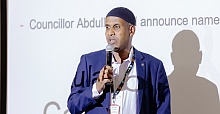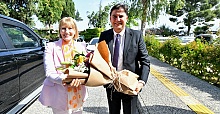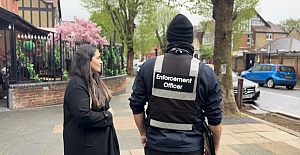By Lucy Jordan
BRASILIA, Brazil (AA) - Even before Brazilian authorities began clearing the wreckage from the site of presidential candidate Eduardo Campos’ plane crash Wednesday, which killed seven including Campos, speculation began over the potential political impact of the former Pernambuco governor’s death. Campos was contesting the presidency in Brazil’s October 5 election on the Brazilian Socialist Party’s (PSB) ticket with running-mate Marina Silva, who won almost 20 million votes against President Dilma Rousseff as a Green Party candidate in 2010.
Business-friendly yet left-wing, Campos was polling in third place, but at a relatively youthful 49, many saw in him a potential for political success that extended far beyond October’s elections.
“It’s a real loss for Brazil’s political future. He probably would have been a very strong candidate for 2018,” David Fleischer, emeritus professor of political science at the University of Brasilia, told the Anadolu Agency. “He had a very pragmatic approach in problem solving, he understood the mistakes and problems of the last four years, and he had interesting proposals to reorganize public policy.”
The latest IBOPE polls, from August 7, had showed Campos gaining one point to 9 percent. Rousseff’s share of voting intentions had held steady at 38 percent, while Neves had also advanced one point to 23 percent.
Kathryn Rooney Vera, a strategist at Bulltick Capital Markets, saw in the accident a boon for incumbent President Dilma Rousseff, tweeting: “Eduardo Campos' tragic accident increases chances for a Rousseff re-election, although still likely goes to second round.”
Others wondered if Campos’ supporters would shift their allegiance across political lines to center-right Aecio Neves, ensuring the chance of a second round, and putting Rousseff at serious risk of losing.
But the real question is whether or not Silva will step into Campos’ shoes as the PSB’s candidate. Silva was not aboard Campos’ plane, having decided at the last minute to stay behind, according to Brazilian political columnist Monica Bergamo.
“If Marina Silva steps in as candidate for PSB, all bets are off,” tweeted blogger for news site R7 Andre Forastieri.
Popular with environmentalists and socialists, Silva ran a social media-savvy campaign in 2010 that saw her take the other candidates by surprise to win 20 million votes and come in third.
“I would assume that Silva will become candidate,” said Fleischer. “I don’t think she would get the 20 million votes she got in 2010 but in the polls that will be done next week she might come out better than Campos had been doing, mainly because she is better known than he was.”
“She would certainly help provoke a second round,” Fleischer added.
The PSB has 10 days to confirm Silva as a candidate. Following news of the crash, which was reported to have killed four other passengers and two pilots, apart from Campos, Rousseff and Neves both cancelled their campaigns stops for the rest of the week.
- Tragic loss of a promising young politician
A business-friendly socialist from a political family, Campos was still too little known during this campaign to have taken, thus far, a large chunk of the vote away from Rousseff and right-of-center Neves. But his record was impressive, and many in Brazil saw a promising political future ahead of him.
As governor of Pernambuco, from 2007 to 2014, Campos successfully used private investment to develop part of the state, including its more remote interior regions, and had successfully privatized some elements of state control over hospitals and schools.
Economic development soared in the region, at a time when Brazil’s growth as a whole was struggling to recapture its momentum. Under Campos’ stewardship, Pernambuco’s GDP grew at least 1% faster than Brazil’s every year since 2010. Fleischer praised Campos’ openness to discussion and debate over policy alternatives, as well as his “very successful” record in Pernambuco and as a former Minister of Science and Technology.
“Most of the people in the scientific community gave him high marks as a minister,” Flesicher told the AA. “He had good ideas and good approaches.”
Brazil’s business community, frustrated with the stagnating economy and frequent government interference that have come to characterise Rousseff’s administration, found him appealing, and Campos had focused his campaign thus far on the state of the economy, promising to lure investors by tackling Brazil’s famously Kafkaesque levels of red-tape. He’d also pledged to reform taxes, reducing the outsized social overheads required of companies in Brazil.
Shockwaves were immediately felt financially – Brazil’s Bovespa index fell more than 2% Wednesday and the dollar declined, dropping to R$2.2630.
Speculation begins over impact of Brazil presidential candidate's death
13 Ağustos 2014 Çarşamba 18:45
reads.
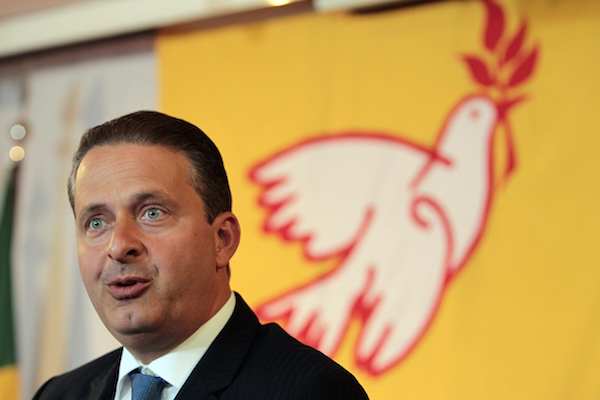


 Prime Minister Keir Starmer's 2025 Easter message
Prime Minister Keir Starmer's 2025 Easter message After Nesil Caliskan a by-election will be held in Jubilee ward in Enfield
After Nesil Caliskan a by-election will be held in Jubilee ward in Enfield Publishing the analysis, Labour’s Cllr Ergin Erbil said Everybody in Enfield deserves basic rights
Publishing the analysis, Labour’s Cllr Ergin Erbil said Everybody in Enfield deserves basic rights Gaza-Israel conflict Statement from Cllr Ergin Erbil, Leader of Enfield Council
Gaza-Israel conflict Statement from Cllr Ergin Erbil, Leader of Enfield Council UK AMBASSADOR TO TURKEY VISITS FETHIYE
UK AMBASSADOR TO TURKEY VISITS FETHIYE Journalists from Europe held the Turkish Media Workshop in Skopje
Journalists from Europe held the Turkish Media Workshop in Skopje The European Union called on Turkey to uphold democratic values
The European Union called on Turkey to uphold democratic values Turkish citizens in London said Rights, Law, Justice
Turkish citizens in London said Rights, Law, Justice The 'Prince of Paris' has impressed in his first EuroLeague season
The 'Prince of Paris' has impressed in his first EuroLeague season Saran Media And Euroleague Basketball Extend Media Rights Partnership for Four More Years
Saran Media And Euroleague Basketball Extend Media Rights Partnership for Four More Years Will Rangers be Jose Mourinho’s next victim?
Will Rangers be Jose Mourinho’s next victim? Jose Mourinho's Fenerbahce face Rangers on Thursday
Jose Mourinho's Fenerbahce face Rangers on Thursday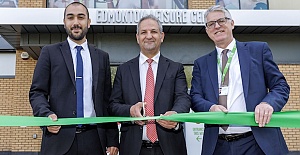 Residents welcomed back to Edmonton Leisure Centre
Residents welcomed back to Edmonton Leisure Centre Barclays has become the biggest UK lender so far to cut mortgage rates
Barclays has become the biggest UK lender so far to cut mortgage rates THE SPRING STATEMENT EXPLAINED, UK ECONOMIC OUTLOOK AND GROWTH FORECASTS
THE SPRING STATEMENT EXPLAINED, UK ECONOMIC OUTLOOK AND GROWTH FORECASTS Launch of Made in Enfield gift shop to celebrate local artists and designers
Launch of Made in Enfield gift shop to celebrate local artists and designers
